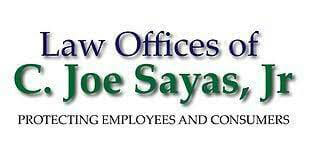Is obesity protected by disability discrimination laws?
Ketryn Cornell has been diagnosed as severely obese since childhood with a body mass index of over 50. Her weight interferes with daily life functions, including bathing and walking. She cannot stand for more than an hour, cannot walk more than a mile at a time, and experiences shortness of breath from engaging in basic activities.
Cornell worked at the Berkeley Tennis Club for over 15 years, most recently as a manager and tennis court washer. She consistently received positive reviews, merit bonuses, and raises. In early 2012, Rigoberto Headley became the general manager of the Club. He told Cornell that “he wanted to change the image of the Club” and wanted to require staff to wear uniforms. Cornell told Headley that finding a uniform that would fit her “might be an issue” because she normally shopped for clothes at specialty stores “due to [her] size.” According to Cornell, Headley’s “response was to laugh and in a mocking tone reply, `Oh yeah, that’s right.'” He later asked her if she was thinking about having weight-loss surgery.

Soon after, Cornell’s hours were reduced when Headley hired a “petite and very thin woman” to take over some of Cornell’s duties. Cornell discovered that the new employee was being paid more money than her. When she complained to Lynne Rolley, the Club’s tennis director, Rolley spoke to Headley about it saying she could understand why Cornell was upset about making less money. Headley responded, “[W]ell, just look at her, she’s going to be jealous of anybody and she just isn’t a good fit and I’m going to have to look for someone else.” Rolley understood Headley to be referring to Cornell’s size when he said “just look at her.”
The Club later fired Cornell, accusing her of having planted a tape recorder in an attempt to secretly record a meeting of the Club’s board of directors, which Cornell denied. Cornell sued the Club for disability discrimination and wrongful termination.
The Club argued that Cornell’s obesity does not constitute a “physical disability” under the law. The trial court sided with the employer and dismissed the case. Cornell appealed.
The Court of Appeal reversed the trial court, holding that Cornell’s disability discrimination should not be dismissed because her obesity may have a physiological cause (i.e., that her obesity may have genetic cause that may qualify as an actual physical disability).
The Court of Appeal also noted that there is evidence of a “negative weight-based message” by one of her supervisors. The Court further held that the employer’s business reason for Cornell’s termination may have been pretextual, and may have been motivated by discriminatory intent against Cornell.
Under the law, it is unlawful to discriminate against an employee on the basis of “physical disability.” To succeed on a disability claim, employees like Cornell must show that they (1) suffered from a disability, or was regarded as suffering from a disability; (2) could perform the essential duties of the job with or without reasonable accommodations; and (3) were subject to an adverse employment action because of the disability or perceived disability.
A physical disability is any physiological disease, disorder, condition, cosmetic disfigurement, or anatomical loss that affects the body and limits a major life activity. There is a list of body systems that could be affected including neurological, immunological, and respiratory systems. Under the law, an employee with a “medical condition” is also entitled to accommodation. A medical condition is any health impairment related to or associated with a diagnosis of cancer or a record or history of cancer, or a genetic characteristic.
California law prohibits discrimination based on disability or medical condition. If a disabled employee is unable to perform his or her work duties, the employer must engage in a timely, good faith interactive process to determine if reasonable accommodation can be made for the employee.
The Law Offices of C. Joe Sayas, Jr. welcomes inquiries about this topic. All inquiries are confidential and at no-cost. You can contact the office at (818) 291-0088 or visit www.joesayaslaw.com or our Facebook page Joe Sayas Law. [C. Joe Sayas, Jr., Esq. is an experienced trial attorney who has successfully recovered wages and other monetary damages for thousands of employees and consumers. He was named Top Labor & Employment Attorney in California by the Daily Journal, consistently selected as Super Lawyer by the Los Angeles Magazine, and is the recipient of PABA’s Community Champion Award for 2016.]







